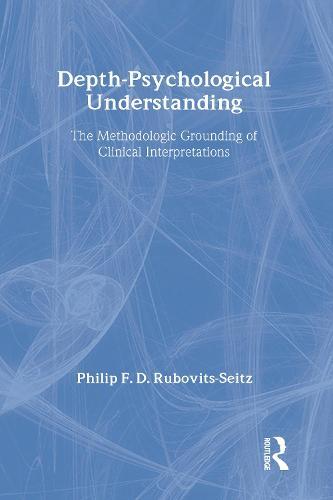Overview
"Clinicians tend to think of interpretation mainly as a type of therapeutic intervention, the communication of depth-psychological information to patients based on methods of inferring latent mental contents. But the interpretive process, Rubovits-Seitz informs us, is first and foremost a form of inquiry, an attempt to gain depth-psycholoigcal understanding in which the therapist's job is primarily to learn, not to teach. ""Depth-Psychological Understanding"" deals with the unsolved problems, limitations and scientifically tenuous status of clinical interpretation. Rubovits-Seitz shows interpretive inquiry to be an exceedingly complex and incompletely understood process - a process that involves conscious, preconscious and presumably unconscious mental operations along with numerous components and overlapping stages. Rubovits-Seitz reviews the paradigm shift in general science from positivism to postpositivism by way of approach. Post-Freudian models of clinical interpretation are evaluated, and clinical methods of interpretation are compared with interpretive approaches in nonclinical fields. The work concludes with a consideration of common but avoidable errors in clinical interpretation along with remedial strategies for dealing with them."
Full Product Details
Author: Philip F. D. Rubovits-Seitz
Publisher: Taylor & Francis Ltd
Imprint: Analytic Press,U.S.
Dimensions:
Width: 15.20cm
, Height: 3.60cm
, Length: 22.90cm
Weight: 0.844kg
ISBN: 9780881632798
ISBN 10: 0881632791
Pages: 480
Publication Date: 01 September 1998
Audience:
Professional and scholarly
,
Professional and scholarly
,
Professional & Vocational
,
Professional & Vocational
Format: Hardback
Publisher's Status: Out of Print
Availability: Out of stock

Reviews
<p> I read Depth-Psychological Understanding, enraptured as by a detective thriller. For 100 years psychoanalysis has been plagued by the crucial problem of interpretation, strangely neglected by Freud, his disciples, and their critics. Rubovits-Seitz examines the question with wide-ranging erudition, clinical sensitivity, philosophical sophistication, and scrupulous intellectual honesty. It is an amazing scholarly achievement that will be the definitive treatise for years to come. <p>- Paul E. Meehl, Ph.D., University of Minnesota, Regents Professor of Psychology, Emeritus<p> As our view of the world shifts ever further from the belief that truth is given, the time has come to take a fresh look at the problem of interpretation. We could find no better guide that Philip Rubovits-Seitz. In a scholarly, optimistic, and wide-ranging survey, he helps us see the underlying commonality that binds psychoanalysis to the other interpretive disciplines and to the unexplored field of commonsense
Author Information
Philip F. D. Rubovits-Seitz, M.D., is Clinical Professor of Psychiatry, George Washington University Medical Center. He was previously Director of Psychiatric Research, Indiana University; Visiting Professor of Psychiatry, University of Cincinnati; and Staff Member, The Chicago Institute for Psychoanalysis. He has received a number of national and other awards for research and teaching.




